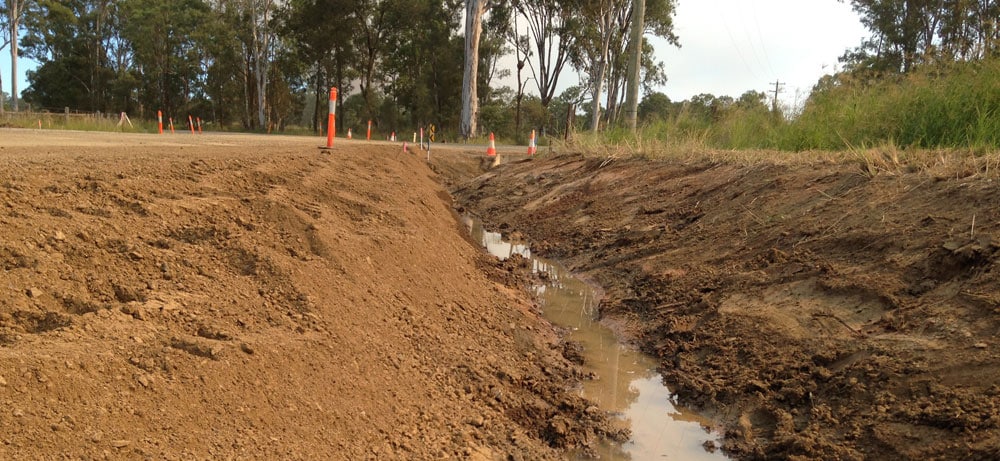
The unbound and flexible nature of the gravel means that the structural strength and resilience to rutting and plastic deformation is dependent on a number of factors including the individual particle or stone crush strength, material gradation (array of stone sizes) and interlocking potential.
The benefits of using this material as a parent pavement material are highlighted by its relative cost, availability and constructability. It is however typically limited to use in dry environments or situations where moisture ingress is not considered likely, given moisture can have a significant effect on pavement performance.
The level of susceptibility to moisture ingress in gravel can include an assessment of:
In an unbound granular material where no additional binding cohesion is present, the effect of moisture fluctuation can result in a significantly reduced resilient modulus or resilience to wheel loading, in turn reducing the insitu pavement strength and durability. This is detailed below.
Strength: The effect of moisture ‘lubricates’ and reduces the interlocking frictional cohesion between individual particles
Durability: The effect of moisture fluctuation for a repetitious loading can result in a build-up in localised pore-pressure resulting in the migration of fine material and segregation of the pavement gravel under repetitious wheel loading
The loss of both strength and durability can result in accelerated deterioration in a conventional unbound pavement structure which is commonly characterised by increased roughness and ride-ability in a spray seal surfacings and fatigue distress and potholing in asphalt surfacings.
The benefits of adopting binding agents in unbound granular material, particularly in areas of poor drainage or high rainfall is demonstrated by the additional cohesive interlock strength generated by the binding agent. It is for this reason, that bound materials are often preferred in areas of moisture susceptibility.
It is also recognised that a binding agent, namely GRT 7000 typically incorporates the ‘fines’ or small particles in the binding process which aids in reducing fines migration and increasing pavement durability.
For more information on Moisture Effects on Unbound Granular Material or Global Road Technology please contact GRT.
Are environmental regulations, health and safety concerns or potential profit loss a concern right now?
Contact Us Now